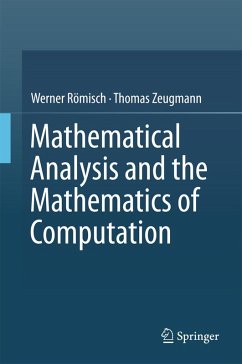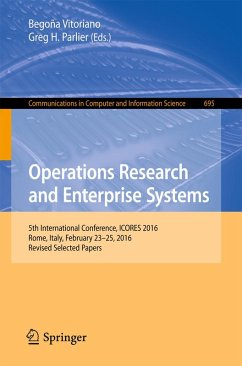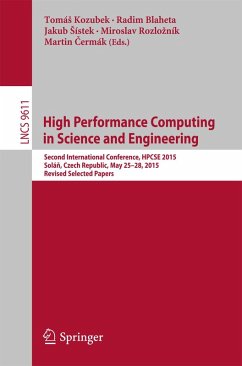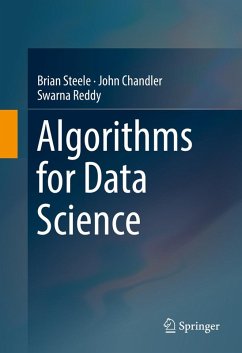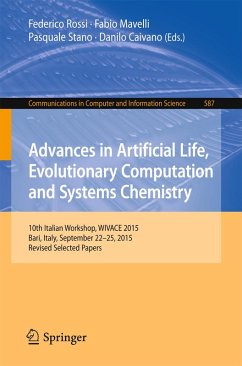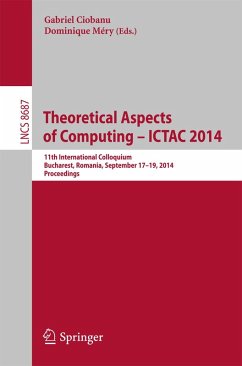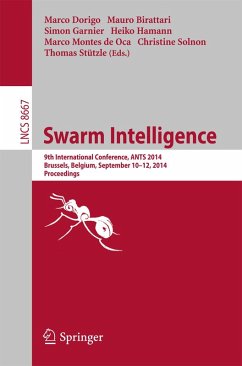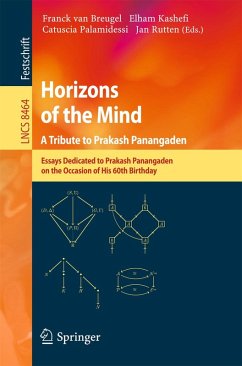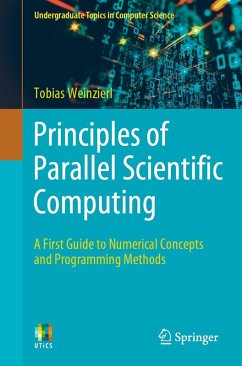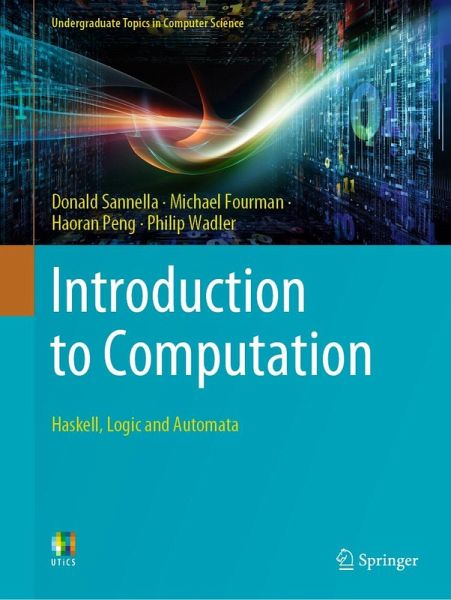
Introduction to Computation (eBook, PDF)
Haskell, Logic and Automata

PAYBACK Punkte
14 °P sammeln!
Computation is a process of calculation involving arithmetic and logical steps, following a given set of rules (an algorithm).This uniquely accessible textbook introduces students to computation using a very distinctive approach, quite rapidly leading them into essential topics with sufficient depth, yet in a highly intuitive manner. The work is anchored in coverage of functional programming (in Haskell), symbolic logic, and finite automata-- each a critical component of the foundations of Informatics, and together offering students a clear glimpse into an intellectual journey beyond mere mast...
Computation is a process of calculation involving arithmetic and logical steps, following a given set of rules (an algorithm).
This uniquely accessible textbook introduces students to computation using a very distinctive approach, quite rapidly leading them into essential topics with sufficient depth, yet in a highly intuitive manner. The work is anchored in coverage of functional programming (in Haskell), symbolic logic, and finite automata-- each a critical component of the foundations of Informatics, and together offering students a clear glimpse into an intellectual journey beyond mere mastery of technical skills. From core elements like types, Venn diagrams and logic, to patterns of reasoning, sequent calculus, recursion and algebraic data types, the book spans the breadth of key concepts and methods that will enable students to readily progress with their studies in Computer Science.
Topics and features:
Assuming no formal background in programming, this highly practical and accessible textbook provides the grounding fundamentals of computation for undergraduate students. Its flexible, yet clearexpository style also makes the book eminently suitable as a self-study instructional guide for professionals or nonspecialists interested in these topics.
Prof. Donald Sannella, Prof. Michael Fourman, and Prof. Philip Wadler are each at the University of Edinburgh's School of Informatics, Edinburgh, UK. Mr. Haoran Peng will soon pursue research interests in machine learning and machine intelligence at Cambridge University, Cambridge, UK.
This uniquely accessible textbook introduces students to computation using a very distinctive approach, quite rapidly leading them into essential topics with sufficient depth, yet in a highly intuitive manner. The work is anchored in coverage of functional programming (in Haskell), symbolic logic, and finite automata-- each a critical component of the foundations of Informatics, and together offering students a clear glimpse into an intellectual journey beyond mere mastery of technical skills. From core elements like types, Venn diagrams and logic, to patterns of reasoning, sequent calculus, recursion and algebraic data types, the book spans the breadth of key concepts and methods that will enable students to readily progress with their studies in Computer Science.
Topics and features:
- Spans the key concepts and methods that underpin computation
- Develops symbolic logic, with a view toward honing clarity of thought; and automata, as a foundation for future study of both their applications and related theoretical topics
- Introduces powerful functional programming ideas that will be useful regardless which programming languages are used later
- Provides numerous exercises to support a clear and open, accessible approach
- Offers a dedicated website with resources for instructors and students, including code and links to online information
- Includes a wide array of marginal notes, empowering readers to "go beyond" the content presented
- Approaches logic and automata through Haskell code, to bring key concepts alive and foster understanding through experimentation
Assuming no formal background in programming, this highly practical and accessible textbook provides the grounding fundamentals of computation for undergraduate students. Its flexible, yet clearexpository style also makes the book eminently suitable as a self-study instructional guide for professionals or nonspecialists interested in these topics.
Prof. Donald Sannella, Prof. Michael Fourman, and Prof. Philip Wadler are each at the University of Edinburgh's School of Informatics, Edinburgh, UK. Mr. Haoran Peng will soon pursue research interests in machine learning and machine intelligence at Cambridge University, Cambridge, UK.
Dieser Download kann aus rechtlichen Gründen nur mit Rechnungsadresse in A, B, BG, CY, CZ, D, DK, EW, E, FIN, F, GR, HR, H, IRL, I, LT, L, LR, M, NL, PL, P, R, S, SLO, SK ausgeliefert werden.



